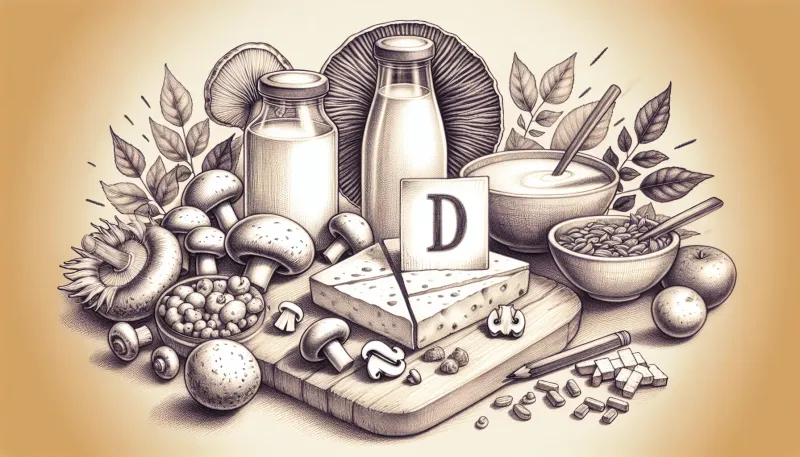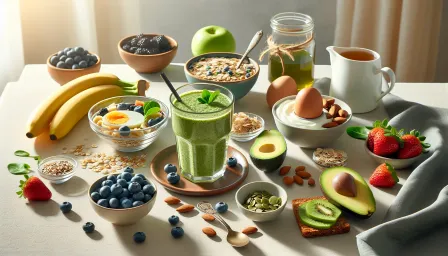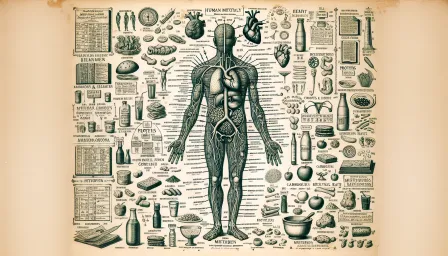The Connection Between a Vegetarian Diet and Vitamin D: Ensuring Optimal Health

Discover how a vegetarian diet affects vitamin D levels and learn strategies for ensuring optimal health through proper nutrition and supplementation.
A vegetarian diet offers numerous health benefits, including reduced risk for heart disease, hypertension, diabetes, and some cancers. However, one aspect that often gets overlooked is the relationship between a vegetarian diet and vitamin D levels. Vitamin D is crucial for bone health, immune function, and overall well-being. This article delves into the connection between a vegetarian diet and vitamin D, providing strategies to ensure optimal health.
Understanding Vitamin D and Its Importance
Vitamin D, also known as the "sunshine vitamin," is vital for maintaining healthy bones and teeth, supporting the immune system, brain, and nervous system, and regulating insulin levels among other functions. It can be obtained through sunlight exposure, certain foods, and supplements.
Sources of Vitamin D
- Sunlight: UVB rays from the sun help the skin synthesize vitamin D.
- Food: Fatty fish, liver, egg yolks, and fortified foods.
- Supplements: Vitamin D2 (ergocalciferol) and D3 (cholecalciferol).
The Challenge for Vegetarians
A vegetarian diet excludes meat, which eliminates some key sources of naturally occurring vitamin D. While certain vegetarian-friendly foods like fortified dairy (or non-dairy) products and mushrooms exposed to sunlight provide vitamin D, they may not always be sufficient to meet daily requirements.
Vitamin D in Plant-Based Sources
Ergocalciferol (Vitamin D2) is found in some plant-based sources and fortified foods, while cholecalciferol (Vitamin D3) is found in animal products. Historically, it has been assumed that D3 is more effective than D2 in raising vitamin D levels in the blood.
How Much Vitamin D Do You Need?
The Recommended Dietary Allowance (RDA) for vitamin D varies based on age, sex, and life stage:
- Adults up to age 70: 600 IU/day
- Adults over 70: 800 IU/day
- Pregnant and breastfeeding women: 600 IU/day
Given the limited dietary sources of vitamin D for vegetarians, achieving these RDAs can be challenging without supplementation or adequate sunlight exposure.
Testing and Monitoring Vitamin D Levels
To ensure adequate vitamin D levels, it's essential to regularly test and monitor them. Blood tests measuring 25-hydroxyvitamin D can provide a snapshot of vitamin D status. Physicians typically consider levels below 20 ng/mL as deficient.
Strategies to Optimize Vitamin D Levels on a Vegetarian Diet
Sunlight Exposure
Regular exposure to sunlight is one of the most effective ways to boost vitamin D levels. Aim for 10-30 minutes of midday sun several times a week, depending on skin tone, geographic location, and season.
Vitamin D-Rich Foods
- Fortified non-dairy milks (almond, soy, oat)
- Fortified orange juice
- UV-exposed mushrooms
- Fortified cereals
Supplementation
For those struggling to meet their vitamin D needs through diet and sun exposure, supplements can be a practical solution. Vitamin D3 supplements derived from lichen offer a plant-based alternative to those sourced from animal products.
Potential Symptoms of Vitamin D Deficiency
Vitamin D deficiency can manifest in various ways, including:
- Fatigue and weakness
- Bone pain and muscle weakness
- Increased risk of infections
- Depression and mood swings
If you experience any of these symptoms, it's advisable to consult a healthcare professional for further evaluation and management.
Conclusion
Maintaining optimal vitamin D levels is essential for overall health and well-being, especially for those following a vegetarian diet. While it can be challenging to obtain sufficient vitamin D from diet alone, regular sunlight exposure and strategic use of supplements can help bridge the gap. By understanding the connection between a vegetarian diet and vitamin D, you can take proactive steps to ensure your nutritional needs are met, fostering a healthier and more balanced lifestyle.



























